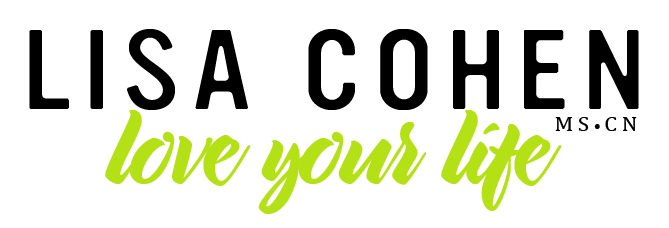Tips For A Healthier Thyroid
/The thyroid is a butterfly-shaped gland in your neck that releases hormones. Thyroid hormones help your body regulate a few things - not a big deal - just the metabolism of ALL cells. And this is critical for maintaining a healthy body weight and having the energy to live your life.
(Yes, your thyroid IS a big deal!)
It’s estimated that at least 3.7% of US adults have an underactive thyroid.
When you don’t have enough thyroid hormone, it’s called hypothyroidism. This can result in the slowing down of your metabolism and cause difficulty losing weight; and even weight gain. Some of the other symptoms can include fatigue, forgetfulness, dry hair and skin, constipation, muscle cramping, and feeling cold.
An underactive thyroid can be diagnosed from a blood test from your health professional.
How does the thyroid become underactive?
There are many reasons why your thyroid may become underactive. The most common is autoimmunity, where the immune cells attack other cells in the body. In this case, the cells of the thyroid gland.
It can also be the result of low levels of iodine, which is an essential mineral. Combining that with high levels of goitrogens (food substances that inhibit iodine from getting into thyroid) and you can be at risk for an iodine deficiency.
NOTE: Iodine-deficiency is not very common in the developed world, so supplements are likely not necessary, and may exacerbate certain thyroid issues. Check with your healthcare professional before taking supplements, and always read the label.
Nutrition and Lifestyle Tips For Healthier Thyroid:
Iodine - Iodine is naturally found in fish and seafood. Other foods that contain iodine are navy beans, potatoes, and eggs. Sometimes levels of natural iodine depend on the amount of iodine in the soil. Iodine is also added (i.e., fortified) to some foods.
Seaweeds—like kelp, dulse, and nori—are packed full of iodine for your body to transform into hormones. They also usually contain a lot of other beneficial nutrients, like calcium, potassium, and Vitamins A through E, so the stuff is truly the superfood you’re missing out on.
NOTE:: During pregnancy and breastfeeding iodine requirements increase by up to 60%, so pay attention to eat enough iodine-containing foods.
Selenium - There is evidence that selenium (another essential mineral) can support the thyroid. A recent review of several clinical studies showed that there is not enough evidence to recommend selenium supplements to people with certain thyroid conditions. Because of this, it’s best to stick with selenium-rich foods like Brazil nuts, mushrooms, meat, and fish.
1-2 Brazil Nuts packs enough selenium to meet your recommended daily allowance.
Protein - One of the common symptoms of thyroid issues is the inability to lose weight. If this is the case, one thing you can eat more of is protein. Protein has a "thermogenic effect" because your body has to spend energy metabolizing protein; this means that protein has a metabolism raising effect.
Reduce goitrogens - Goitrogens are plant-estrogens that prevent the iodine in your blood from getting into your thyroid where it's needed to make thyroid hormones. Goitrogens themselves are not that powerful, unless they're eaten excessively, or are combined with a diet already low in iodine. They are found in "cruciferous" foods such as Brussels sprouts, broccoli, cauliflower, cabbage, and kale. Goitrogens can be deactivated by cooking the foods they're found in. Because these cruciferous vegetables are very nutritious, you may choose to cook them instead of eliminating them altogether.
Go Gluten-free - There is evidence of a link between underactive thyroid and gluten sensitivity. There may be a "cross-reactivity" where the immune cells that are sensitized to gluten can attack the thyroid cells by mistake; this is essentially how autoimmunity works and can affect more than just your thyroid. You might request getting tested for celiac disease if you are experiencing thyroid issues.
Avoid Triclosan - Triclosan is a common ingredient in many soaps and body washes, but it may have an adverse effect on your thyroid. A study published in Aquatic Toxicology in 2006 showed that even minor exposure to the chemical can affect how your thyroid releases hormones. Luckily, In December of 2017, the FDA issued a ruling banning over-the-counter products containing triclosan.
Take Up Yoga - A study in Yoga Mimamsa found that doing certain yoga poses can help your thyroid hormone release functions. During your next routine, try incorporating poses like boat pose, bridge, and king pigeon pose. These poses help to open up throat circulation and improve energy flow around the thyroid.
Lifestyle upgrades - Weight gain and difficulty losing weight are very common when it comes to thyroid issues. To maintain a healthy weight, it’s important to get enough regular exercise, enough quality sleep, and reduce stress.
Conclusion
If you have concerns about your thyroid, then ask to be tested. That along with testing for celiac disease can help to confirm your best plan to move forward in good health.
Foods to support your thyroid include iodine- and selenium-containing foods, cooked cruciferous foods, and gluten-free foods. Don't forget to eat enough protein to help boost your metabolism. Also, consider reducing the amount of raw cruciferous foods you eat.
Supplementing with iodine or selenium should be done with a health professional’s advice.
And regular exercise, quality sleep, and stress-reduction are all part of the holistic approach to supporting your thyroid.
References:
http://www.precisionnutrition.com/all-about-thyroid
https://www.dietvsdisease.org/the-best-diet-for-an-underactive-thyroid/
http://www.who.int/elena/titles/iodine_pregnancy/en/
https://www.dietvsdisease.org/meal-plan-for-hypothyroidism-and-weight-loss/
https://www.dietvsdisease.org/meal-plan-for-hypothyroidism-and-weight-loss-week-2



